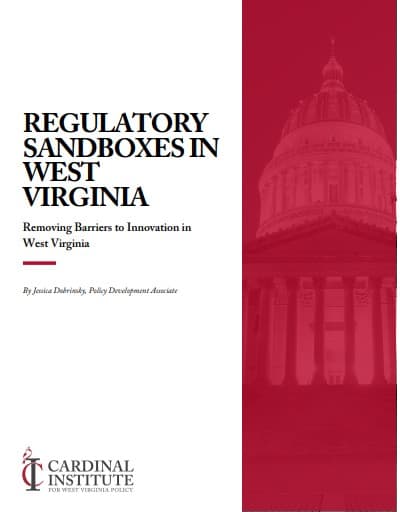REMOVING BARRIERS TO INNOVATION IN WEST VIRGINIA
INTRODUCTION
The COVID-19 pandemic severely damaged the U.S. economy due to government-mandated shutdowns. The 14 months where the country was forced to pause led to increases in unemployment, closures of business, and delays in supply chains. The regulatory machine has only worsened the effects of a struggling economy and a declining workforce for innovators and industry.
Government agencies set rules in every activity we participate in, whether we drive our cars, cut our hair, or what house we buy. In their conception, regulations are intended to protect civil liberties and worker safety. Instead, they have become one of the most significant harms to individuals and their businesses.
Regulation and innovation are natural competitors. The laws dictated by federal and state agencies create significant barriers to startups. These regulatory barriers include how money is spent for equipment, wages and benefits, staff requirements, safety, accounting, transportation, and financial services. Other regulations may require a sure way to report or audit a business.
The principles of basic economics explain why regulation is detrimental to the foundation of new businesses: regulations have costs. If regulation creates mandates about how companies can or cannot operate, it creates models for expensive production, and costs must be offset to stay in operation.
Many times this means transferring the liability to the consumer, which increases the price of a product. The Mercatus Center at George Mason University released a study in 2016 concluding that, on average, for each 10% increase in regulations, there is a 7% increase in consumer price. [2] New trials of various industries, known as “sandboxes,” have been created to combat the regulatory impediments to innovation.


